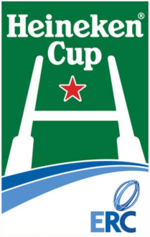
are split as follows: Rabo 12 52%, English and French 24% each. Unless changes are made to the current system, the French and English clubs will leave the current ERC-run HC competition at the end of this season.
How will the ‘Celtic’ nations react? Some of their clubs will undoubtedly be worse off if the ERC agree to the changes proposed by the English and French clubs. However, if the ERC refuse to accommodate the Anglo-French alliance and a new competitor is set-up, then all remaining ERC clubs will almost certainly be worse off. A HC without any English or French clubs would not be as popular, both in terms of paying spectators and TV viewers, as it will effectively mimic the current Rabo 12. On the other hand, a new Anglo-French competition may also struggle without the presence of, particularly, the Irish and Welsh clubs.
As well as that, not only would demand for such new competitions be likely to be lower, competitive balance may also suffer as well. Munster, Leinster and the Ospreys (Wales) have dominated the Rabo 12 in the last six seasons even though these clubs do not often play full-strength teams as the current HC is their priority and many players are often missing on international duty. A HC without French and English teams would likely be dominated by Irish teams, particularly if they are regularly at full-strength.
In any new Anglo-French league, recent experience suggests that such a league will be dominated by French clubs who look like they will dominate the current HC for the next number of seasons. This is a consequence of large investment in teams by rich owners which has been facilitated by a salary cap well in excess of that in operation in the English Premiership. The French salary cap for this season is €10m while the English cap is £4.5m (approx €5.35m at current exchange rate). Without levelling the playing field, it is difficult to see many English teams doing well in such a proposed league, especially with the influx of top Southern Hemisphere players to France continuing.
The worry for the IRFU must be that more Irish players will follow Johnny Sexton to France as it will find it more difficult to generate sufficient revenue to compete with higher wages paid in France. As well as that, investment in academies to develop promising young Irish players will surely be affected, leaving the Irish national team worse off in the future.
The question must be asked as to whether this threat by the English and French clubs is credible and whether it is a sufficient bargaining tool to induce changes in the current HC structure. One way in which the French and English clubs have signalled how credible their threat is by already having agreed a deal with BT Sport to televise games from their proposed European competition. The ERC have already signed a contract with Sky for the HC over the next few seasons. It is unlikely that Sky will be happy with a HC that does not include English teams.
It will be interesting to see who blinks first.
 RSS Feed
RSS Feed